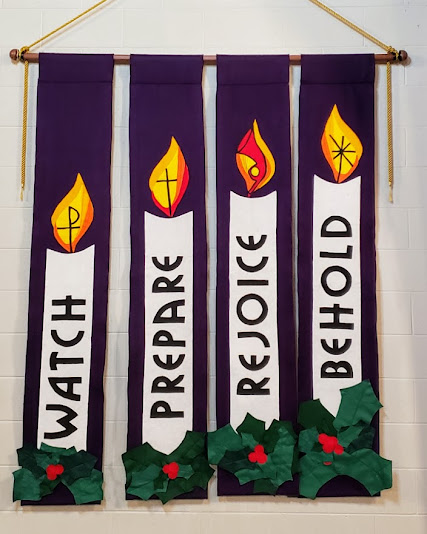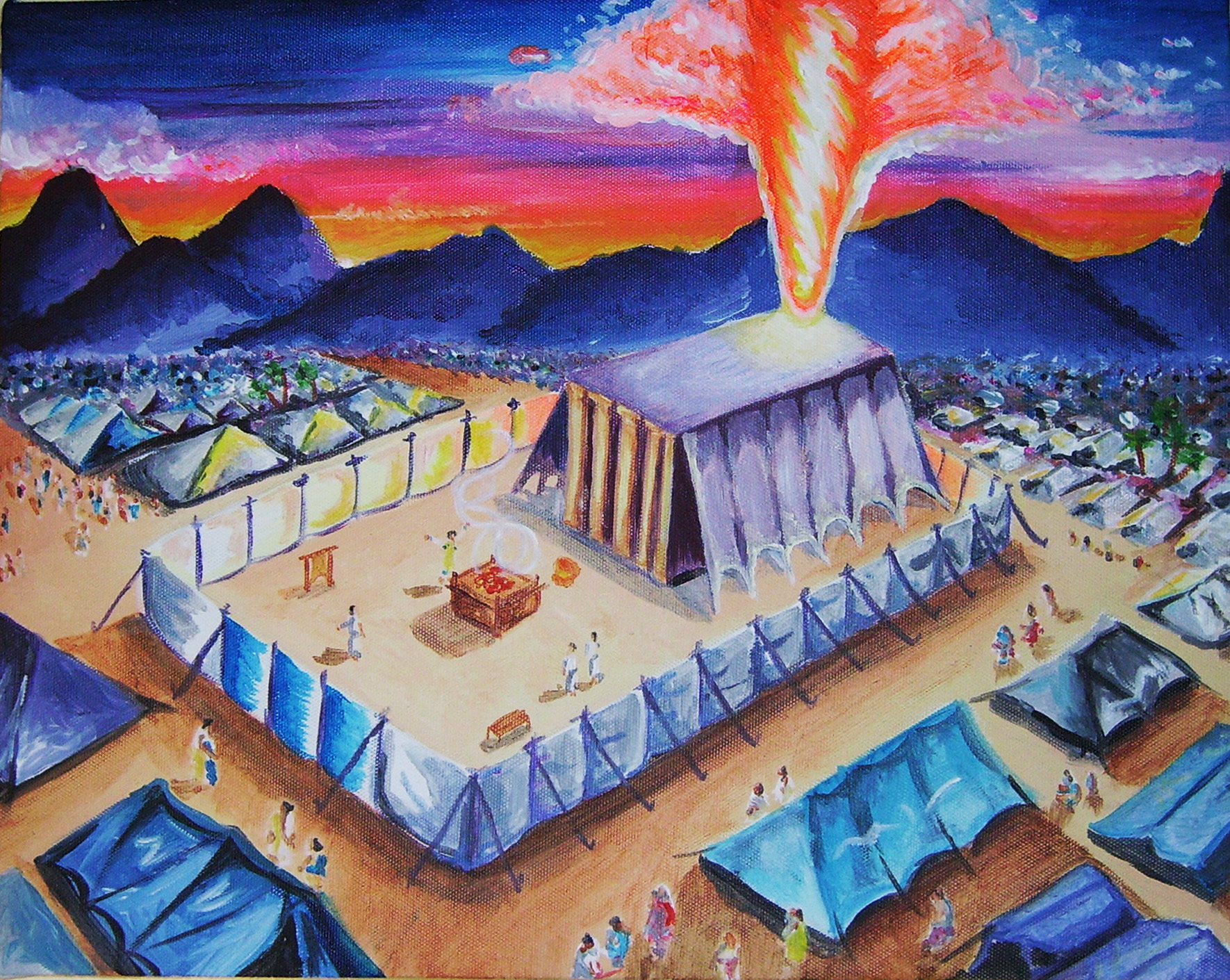Hebrews 10:11-14 (15-18) 19-25 New Revised Standard Version
11 Day after day every priest stands and performs his religious duties; again and again he offers the same sacrifices, which can never take away sins. 12 But when this priest had offered for all time one sacrifice for sins, he sat down at the right hand of God, 13 and since that time he waits for his enemies to be made his footstool. 14 For by one sacrifice he has made perfect forever those who are being made holy.
15 The Holy Spirit also testifies to us about this. First he says:
16 “This is the covenant I will make with them
after that time, says the Lord.I will put my laws in their hearts,
and I will write them on their minds.”
17 Then he adds:
“Their sins and lawless acts
I will remember no more.”
18 And where these have been forgiven, sacrifice for sin is no longer necessary.
19 Therefore, brothers and sisters, since we have confidence to enter the Most Holy Place by the blood of Jesus, 20 by a new and living way opened for us through the curtain, that is, his body, 21 and since we have a great priest over the house of God, 22 let us draw near to God with a sincere heart and with the full assurance that faith brings, having our hearts sprinkled to cleanse us from a guilty conscience and having our bodies washed with pure water. 23 Let us hold unswervingly to the hope we profess, for he who promised is faithful. 24 And let us consider how we may spur one another on toward love and good deeds, 25 not giving up meeting together, as some are in the habit of doing, but encouraging one another—and all the more as you see the Day approaching.
***********
The reading from Hebrews 10 begins where we’ve left off several times. The Levitical priests must offer the same sacrifices again and again in the Temple/Tabernacle. They have effectiveness, but they need regular boosters (think flu shot or maybe COVID vaccines). However, when it comes to the offering of Jesus, acting as our high priest, who offers himself as the perfect sacrifice, it only takes one dose (sort of like the measles shot). Then, when Jesus has completed this once for all offering, he takes his place at the right hand of God until the moment when his enemies are made a footstool for his feet. That is, he will sit upon the throne next to God until all those who oppose his work on our behalf finally submit themselves to his authority. Thus, “by one sacrifice he has made perfect forever those who are being made holy.” This is the good news given to those who will receive it with open arms.
The previous readings from Hebrews have been making this claim for the superiority of Jesus’ priesthood/offering. It is a central part of the message in the Book of Hebrews. We can see here that the author of Hebrews is working with Platonic categories that distinguish between the material/spiritual and earthly/heavenly dimensions. Thus, the Levitical priesthood provides the earthly counterpart to the heavenly priesthood of Jesus. That is why Jesus offers the perfect sacrifice that needs to be offered only once. Again, it’s important that when we read this, we do not read it with supersessionist eyes such that Christianity supersedes/replaces Judaism.
The creators of the Revised Common Lectionary have made verses 15-18 optional. Nevertheless, these verses which direct our attention to the message offered by the Holy Spirit through the prophet Jeremiah might be worth hearing. In these verses, Hebrews points us to Jeremiah 31, where Jeremiah speaks of the new covenant God makes with Israel, a covenant in which the law is written on the heart rather than stone tablets. In other words, if the law of God is internalized then it need not be codified. People will simply walk in the ways of God without having to be reminded by external symbols such as stone tablets. Therefore, God “will remember their sins and their lawless deeds no more.” Thus, Jesus will have reconciled to God all those who believe. As a result, there is no longer a need for sacrifices. With one offering by Jesus the High Priest of himself everything is wiped clean. It is not that the law and the sacrifices are meaningless, however, in Christ, they take on a new identity. What was a largely material engagement is now essentially spiritualized. The earthly is now heavenly.
To this point, the reading has focused on what God has done for us through Jesus. Now we hear what this means for us. As we move into this final section of the reading it’s important to remember that Hebrews spiritualizes things. So, having been made clean through Jesus’ sacrifice, we can now enter the sanctuary (the holy of holies) through the blood of Jesus with confidence. This sanctuary is not an earthly temple/tabernacle. It’s a heavenly one. In this vision, there is a curtain that has been opened so we can enter the sanctuary. This is the new and living way so that we might approach the altar with an assurance of faith and hearts cleansed from an evil conscience, our bodies having been washed with pure water. This could be a reference to baptism as the means by which the believer identifies with or embraces the gift of salvation in Christ.
In speaking of entering the sanctuary likely serves as a call to join together as a congregation in worship. As one participates in the worship of God, one enters the heavenly sanctuary. This message is reinforced in verse 25, where the author tells the readers not to neglect meeting together, which appears to have been the habit of some in the community. Why is this important? We’re told that in gathering together they can encourage one another as the “Day” approaches. That day would be the Second Coming of Jesus referenced in Hebrews 9— “so Christ, having been offered once to bear the sins of many, will appear a second time, not to deal with sin, but to save those who are eagerly awaiting him” (Heb. 9:28). By joining together in worship, the believers prepare themselves for the coming Day of the Lord. Again, we see that Hebrews has a strong apocalyptic dimension.
Stepping back to the prior verses, the author of our text tells us that we are to approach the heavenly altar/throne, “with a true heart in full assurance of faith” (Heb. 10:22). It is important that we highlight this reference to the word “faith,” which will be developed more fully in chapter 11, where we learn that “faith is the assurance of things hoped for and the conviction of things not seen.” It is, Hebrews tells us that it was through faith that the ancestors, including Abraham, receive approval (Heb. 11:1-2). We see that vision of faith present here in the call to “hold fast to the confession of our hope without wavering.”
This call to not waver in one’s faith needs to be understood in context. The issue here is not one of “doubt” as we often think of it in the modern context. This isn’t a call for theological certainty. It is a call to stay with the program, to not give up in the face of persecution or pressure. It is a call to endurance. This is why the author addresses those who are absenting themselves from the community. Modern Christians, especially American Christians, think in individualist terms when it comes to matters of religion or faith. The community is secondary. In fact, for many “church” is nothing more than an “institution.” When looked at through consumerist eyes, the question is usually, what do I get out of this exchange. For the author of Hebrews, by absenting yourself from the community you not only endanger your own faith, but also that of the rest of the community. So, having decided to follow Jesus, a decision confirmed through the washing of water (baptism), don’t look back. Keep your eyes on the prize. You can do this, our author tells us, because God is faithful to the promise! In other words, don’t squander the gift of salvation. Jesus is faithful to the promise, so we should be faithful to it as well.




